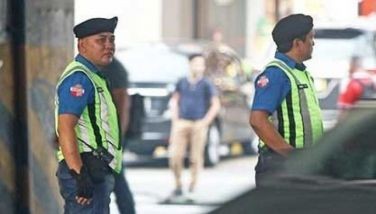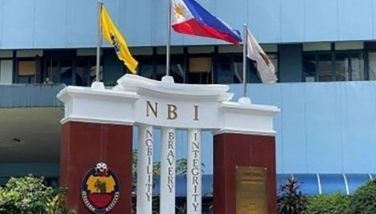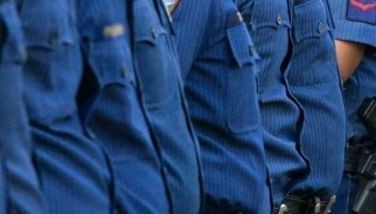High Court gives way to slander suit vs ADB economist
April 2, 2001 | 12:00am
BAGUIO CITY — Stressing that diplomatic immunity applies only to official acts, the Supreme Court denied with finality the motion for reconsideration filed by an Asian Development Bank (ADB) economist whom his Filipino secretary had charged with slander.
The High Court effectively ordered the lower court to hear the slander case lodged against Chinese national Jeffrey Liang by his secretary, Joyce Cabal.
The tribunal’s resolution was penned by Associate Justice Consuelo Ynares-Santiago and concurred in by Chief Justice Hilario Davide and Associate Justices Reynato Puno, Santiago Kapunan and Bernardo Pardo.
Liang was the subject of two criminal information sheets for grave oral defamation filed by Cabal who alleged that the ADB executive uttered defamatory words against her on Jan. 28 and 31,1994.
The Metropolitan Trial Court of Mandaluyong City dismissed the case on April 13, 1994 because of advice from the Department of Foreign Affairs that Liang enjoyed immunity from legal processes.
But the Regional Trial Court of Pasig City, acting on a motion for certiorari and mandamus, set aside the Mandaluyong court’s decision. Liang then elevated the case to the High Court which initially denied his petition on Jan. 28 last year.
The Supreme Court ruled that "immunity granted to officers and staff of the ADB is not absolute; it is limited to acts performed in an official capacity."
The High Court effectively ordered the lower court to hear the slander case lodged against Chinese national Jeffrey Liang by his secretary, Joyce Cabal.
The tribunal’s resolution was penned by Associate Justice Consuelo Ynares-Santiago and concurred in by Chief Justice Hilario Davide and Associate Justices Reynato Puno, Santiago Kapunan and Bernardo Pardo.
Liang was the subject of two criminal information sheets for grave oral defamation filed by Cabal who alleged that the ADB executive uttered defamatory words against her on Jan. 28 and 31,1994.
The Metropolitan Trial Court of Mandaluyong City dismissed the case on April 13, 1994 because of advice from the Department of Foreign Affairs that Liang enjoyed immunity from legal processes.
But the Regional Trial Court of Pasig City, acting on a motion for certiorari and mandamus, set aside the Mandaluyong court’s decision. Liang then elevated the case to the High Court which initially denied his petition on Jan. 28 last year.
The Supreme Court ruled that "immunity granted to officers and staff of the ADB is not absolute; it is limited to acts performed in an official capacity."
BrandSpace Articles
<
>
- Latest
- Trending
Trending
Latest






























